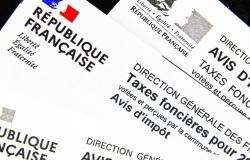Concretely, to submit a request to the ONEM, you must: inform your employer; the latter completes his part of the request for benefits via the Social Security portal site; then, it is the worker who completes the request via the Break@work application; and finally, the ONEM sends its decision in the e-Box.
The pension bonus will be counted
The pension bonus will be reintroduced and counted from July 1 for workers who retire from January 1, 2025. This measure aims to encourage workers to retire later. To use it, the pensioner must justify an additional period of work of at least six months beyond the legal date of his early pension. The bonus will be progressive and can be accumulated over a maximum of three years. It will reach 3,928 euros net for the first additional year worked beyond the date of early retirement, 7,855 euros for the second additional year, and finally 11,783 euros for the third successive year.
There is no need to request the bonus, as it will be calculated directly with the pension and will be paid by default in the form of a single payment. If desired, a pensioner can request that the bonus be paid in the form of a monthly annuity. It will be accessible to employees, self-employed workers and civil servants alike.
The indexed kilometer tax in Flanders and Brussels
The kilometre tax for heavy goods vehicles will be indexed in Brussels, announced Viapass, the public body responsible for this levy. In order to encourage less polluting logistics transport, the preferential rate of zero cents/km already granted to zero-emission vehicles (ZEV) on the entire Flemish road network will also come into force in the Brussels-Capital Region on this date. The software of the OBU (On Board Unit), devices that record the kilometres travelled by trucks, will be automatically updated with the new rates. The kilometre tax has been in force in Belgium since April 2016, according to the simple principle of the user pays: users of motorways and main national roads pay according to the kilometres travelled, the weight and the pollution rate of their vehicle. It concerns heavy goods vehicles intended or used for the transport of goods and whose maximum authorised mass exceeds 3.5 tonnes.
In Wallonia, the kilometre tax rates will remain unchanged, as they were already indexed on 1 January 2024. No new toll roads (kilometres) will be added in Flanders and the Brussels-Capital Region, Viapass specifies. In the Walloon Region, part of the N246 in Tubize will no longer be subject to the kilometre charge for trucks.
The amount of mobility allowance exempted by the ONSS will be increased
The amount of the mobility allowance exempted by the ONSS will increase, according to the human resources service provider Acerta. The maximum amount exempted will thus increase to 0.1929 euros per kilometre. The mobility allowance consists of a flat-rate reimbursement of travel expenses in sectors of activity where the place of work is not fixed, such as in the case of workers who must regularly travel to construction sites, for example.
Since 2020, the exemption ceiling has been 0.1579 euros per kilometer. The amount has therefore not followed the same increase as salaries, indexed several times in recent years. To correct this, the maximum amount will increase to 0.1929 euros per kilometer. The increase in the ceiling will, however, not lead to an automatic increase in the amount provided at the sectoral level, since it is not obligatory to grant the maximum exempt amount. The royal decree formalizing the increase in the maximum exempt amount was published in the Belgian Official Gazette on May 28, 2024. The measure will come into force on July 1.
Federal authorities will now only buy electric service vehicles
Federal authorities will only purchase or lease electric service vehicles. This measure is part of the European ambition to achieve climate neutrality in Belgium by 2050. The obligation to switch to “zero emission” company cars arises from a European directive, but the The federal government intends to get a little head start, by changing its purchasing behavior from summer 2024 (rather than January 2026).
The federal authority’s fleet currently consists of 920 vehicles, not including those of the police or the Defence. These are mainly service vehicles for customs or the social inspection, as well as company cars for some staff members, although this is limited to management positions. Out of a total of 65,000 civil servants, 170 have such a car.
In Flanders, technical inspection becomes biannual
From July 1, in Flanders, cars over four years old with less than 160,000 kilometers on the odometer will only have to undergo a technical inspection every two years. The frequency of the technical inspection is extended to two years provided that the vehicle is less than 10 years old and its mileage is less than 160,000 km. Beyond this limit, the control will become annual again.
This relaxation aims to reduce the work of the inspection centers, improve the service, reduce queues in front of the inspection centers as well as the delays in obtaining an appointment. In addition, decentralized technical inspections will also be possible for cars, vans and trailers.
Changing the name of one or both parents is simplified
Adults of Belgian nationality, recognized as refugees or stateless persons and who wish to bear the name of one of their parents, a combination of these names or the name of an adopter will be able to do so from July 1st with their common, without going through legal proceedings. If the change of name previously had to be addressed to the Minister of Justice, the procedure concerning a change of name for that of a parent, a combination of the two parents or that of an adopter, can now be done directly with the municipality.
Interested Belgian adults or refugees may apply to their municipality of residence, their last municipality of residence (in the case of residence abroad) or the City of Brussels (in the absence of current or previous residence in Belgium). Such a request may only be authorised once in this way and must not be based on any special conditions. The municipality has one month (or three months in case of doubt) to process this request. In the event of refusal, the person concerned may appeal to the family court. If accepted, the name change will also be extended to the minor children of the person concerned, but the consent of children over the age of twelve is required.
Walloons using family help will pay less
Walloons who use family help will pay less from 1 July. In April, the regional government adopted a reduction in the contributory share of beneficiaries by 1.5 euros per hour worked, thus increasing Wallonia’s contribution from 0.4 to 1.9 euros per hour worked. Family and senior support services employ family helpers, senior helpers and home carers who provide support to isolated, elderly, disabled or sick people.
Better reimbursement for certain cancer treatments
Treatments undergone by a person suffering from cancer (radiotherapy, chemotherapy) can lead to hair loss. Today, the nomenclature provides for partial intervention in the purchase of a wig. A person who is bald following cancer treatment will be able to benefit from a reimbursement from the health insurance fund of up to 120 euros also for the purchase of other accessories intended to cover the head, such as a scarf or a covering. chief.
Financial costs for people requiring complex dental care following cancer will also be better reimbursed from 1 July. The reimbursement conditions for the fitting of new teeth will be extended, thus opening up the nomenclature to facilitate access to difficult dental restorations (metal frame, osteointegrated implant, bar, bridge or crown).
Multidisciplinary nephrological assessment will be reimbursed in approved centers
Multidisciplinary nephrological assessment reimbursed in approved centers Multidisciplinary nephrological assessment in one of the 52 approved dialysis centers in Belgium will be reimbursed from July 1. According to estimates, around 1,800 patients with kidney failure are eligible.
Concretely, a team made up of a nephrologist, a nurse and a social worker will firstly strive to prevent more serious problems and provide quality multidisciplinary support. Secondly, the objective will be to examine jointly with the patient and his entourage what is the appropriate treatment route. The fee is set at 151.5 euros, with a co-payment of 12 euros (or 3 euros if the patient benefits from the increased intervention). The service can be billed four times a year. Nephrologists freed up the necessary 900,000 euros by reducing fees for dialysis.






